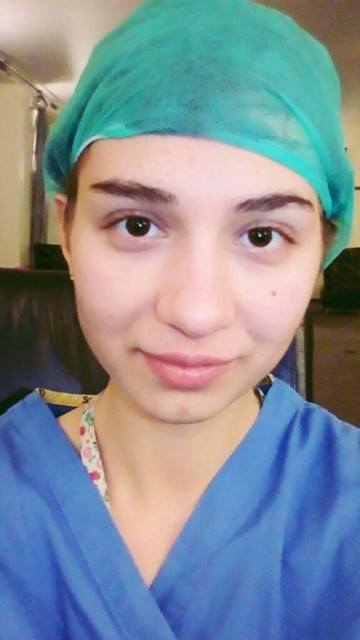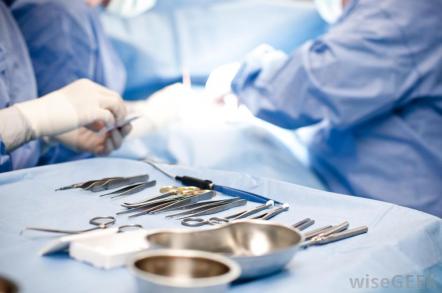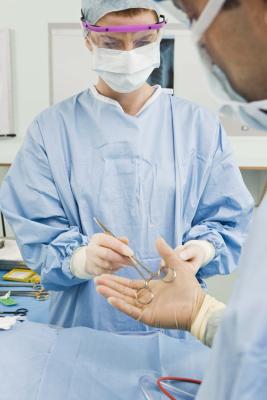I have one week left to spend in emergency theatres and my 12-week placement is close to its end. Scrub nursing initially sparked my interest in year one, when I spent two week in orthopaedic theatres watching hip and knee replacements all day, every day. In module 5 we were asked which area we would like to have our placement in and I immediately knew I wanted to go back into theatres.
Emergency theatres provide 24/7 care to emergency and obstetric patients. The shift pattern in emergency theatres varies. For example, shifts can be: 0730-1800, 1230-2115, 1800-0200, 2100-0800 and cover weekdays, weekends and bank holidays. The majority of the shifts I did were 0730 until 1800.
I arrived at 0725 and went to changing room to put scrubs on along with a green hat (green for student) to keep my hair away. I look a little bit like a boy 😀

Then I went to the theatre where I met my mentor. We checked the cases on the emergency list and familiarized ourselves with the plan for the day. In the morning we do a lot of routine cleaning and stocking. We prepare the surgical sets along with the extra bits and bobs (sutures, extra instruments, etc.) each surgeon prefers for their case. Once the first patient was brought in to the anaesthetic room I began to scrub up for a plastics case (repair of lacerated tendon on hand). Scrubbing up involves washing my hands thoroughly in a specific way for about 5 min, then putting a mask, gown and gloves on. I normally end up looking something like this:

http://images.wisegeek.com/surgical-tools.jpg
I then moved close to my sterile field and began organizing my trolley with all the surgical instruments. The role of the scrub nurse is quite different from the traditional nurse on a ward. The scrub nurse is responsible for ensuring patient safety checks have been done, maintaining the sterility of the field and count all sharps, swabs and instruments before and after the operation, ensuring no foreign bodies have been retained inside the patient. In addition, he/she has to ensure all equipment needed for a case, such as suctioning, diathermy, camera, flush, etc. is working properly. The scrub nurse will also assist the surgeon with prepping and draping, handling surgical instruments and removing excess instruments from the sterile field. It is vital to focus on what the surgeon is doing and wait for signals on what he/she might need next. At the end of a procedure all safety checks and relevant documentation must be completed. Sharps should be disposed of as per local policy while instrument sets are placed in a disposal hold for collection after all instruments have been counted correctly. The patient is transferred from theatres to recovery where the scrub nurse would hand over the care.
Surgeries can last from a few minutes to a few hours. Theatres are cleaned by staff between each surgery and preparation for the next case begins. Normally after a surgery you will have a break when you can have your lunch.In the afternoon surgical cases will continue while staff will rotate as either being scrubbed up or circulating, while others will be relieved for breaks. At the end of the day the whole theatre will be cleaned and staff will stock up.There is great skill mix within surgical theatres, hence it’s a dynamic and exciting environment to work in.

